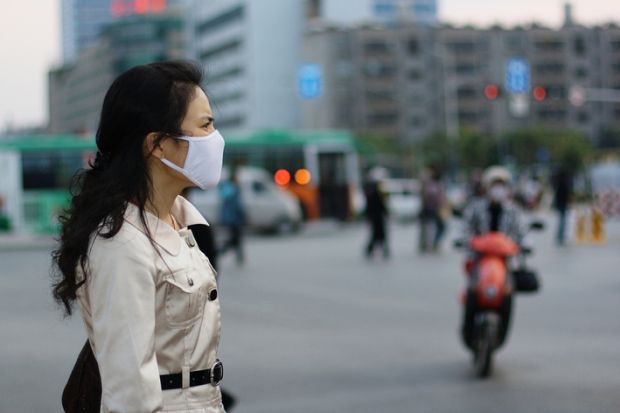A national fund for projects supporting female academics in China attracted just a handful of applicants, raising questions about whether researchers in the country place sufficient importance on the issue.
Universities, research institutes and other organisations have been encouraged to submit applications for a grant of up to ¥350,000 (£40,000) offered by the China Association for Science and Technology (CAST) under an extended deadline, as “there were less than three applicants”. The threshold policy of CAST requires at least three applications to move on to the reviewing process.
The fund asks recipients to conduct an investigation into the development of groups and associations for female science and technology workers and to raise awareness of these groups through policy campaigns and themed events across the country.
“I feel this is an example of the lack of talent in this niche but important topic,” said Yuzhu Peng, a senior lecturer at the University of the Arts London. “This does show that we need more academics to be interested in the studies of gender issues in education and offer policymakers advice to tackle these issues.”
China has released a set of recommendations to prioritise female academics for research funding and talent schemes, including giving priority to female scientists when it comes to the membership of Chinese Academy of Sciences and the Chinese Academy of Engineering, where female members only make up 5 to 6 per cent of the top scientists.
However, the recommendations, particularly the one about membership of the CAS and the CAE, were not welcomed by everyone. A popular thread on Zhihu, one of China’s largest knowledge-sharing communities, shows that many comments think the policy will “give privilege to female scientists” and “enhance antagonism between men and women”.
There are other factors that could affect the implementation of the policy. “I am very supportive of the initiative, but the measure alone does not address the difficulties female academics are facing in China,” said Dr Peng, recalling how he was told in a job interview that “being a single man” was an “advantage”.
“This might be an isolated example, but it probably shows how sexist views could influence decision-making in Chinese universities’ recruitment,” he said.
Dr Peng also emphasised the expectations placed on female academics about their multiple roles in a patriarchal society. “Women are required to take more family service responsibilities and manage a perfect home-work balance. It is not surprising to see more obstacles in female academics’ career paths compared with their male peers,” he said.
Register to continue
Why register?
- Registration is free and only takes a moment
- Once registered, you can read 3 articles a month
- Sign up for our newsletter
Subscribe
Or subscribe for unlimited access to:
- Unlimited access to news, views, insights & reviews
- Digital editions
- Digital access to THE’s university and college rankings analysis
Already registered or a current subscriber? Login








